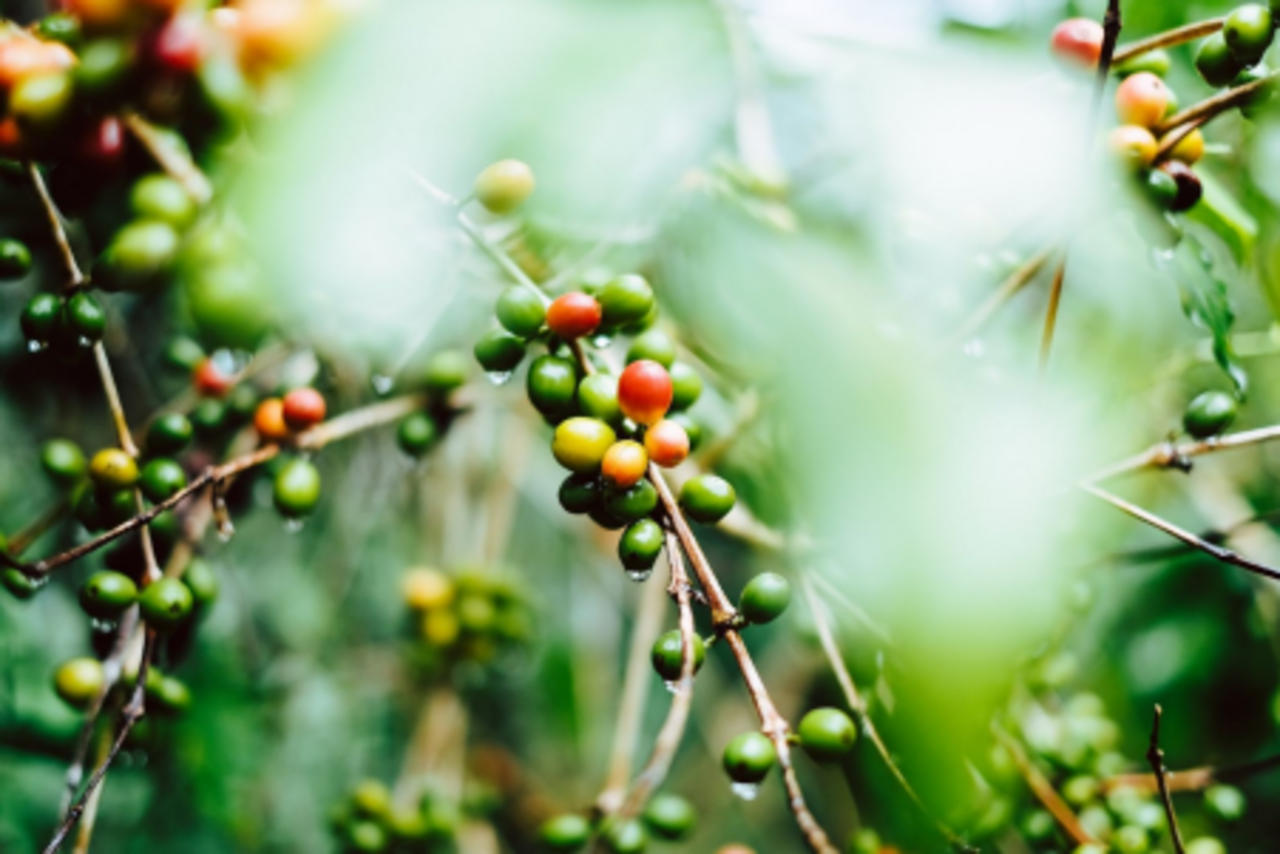Geneva university project shows hidden water footprint behind each cup of coffee

Have you ever thought about how much water goes into your daily cup of coffee? It’s a lot more than what you pour out of the kettle. In fact, the UN estimates it takes 140 litres of water to grow, process and transport enough coffee beans for one single cup.
Project Flowback, a new digital campaign being developed by students at the University of Geneva aims to educate and incentivise coffee buyers to decrease their water footprint while enjoying a more sustainable “café genevois”. Olivia Lundmark, Sam Ringier, Ines Navarre, Beata Ekman and Huimin Hu, explain the concept.
“There is only one water source in our neighbourhood,” Agegnehush Kahen, a 70-year old Ethiopian farmer from a village called Mankusa, tells the UK-based non-profit organisation Project Waterfall.
“It’s a hand-dug well. Unfortunately, it is broken now, meaning we need to buy water from the nearby town or walk for about an hour to fetch water from a river called Debohela,” she explains.
Kahen is one among millions of small-scale coffee bean producers located miles away from Switzerland and suffering the effects of water scarcity. Access to safe drinking water, food insecurity and increasing distances to water resources are all daily difficulties that coffee producers face while harvesting the coffee beans that will later turn into our daily cup.
Although these issues are many and seem to be located out of our reach, they are embedded in our daily lives as Swiss consumers of coffee. Cities with vivid coffee cultures, such as Geneva, in which people consume on average three coffees per day, actively depend on the water resources used abroad.
Despite its large water resources, more than 80 per cent of Switzerland's water footprint is created abroad, according to a report by WWF. Comparing this to the so-called virtual water footprint of the United States, which is only 20 per cent, Switzerland has a lot to catch up on.
In 2018, coffee consumed in the country accounted for approximately 13 trillion litres of water, official figures show. As one of the largest exporters of coffee in the world in terms of value, Switzerland has a crucial responsibility to ensure that businesses which profit from the industry create less impact in the countries providing the commodity.
Other industries have already become more aware of these issues within the past few years. For example, a number of food and drinking businesses have strived to decrease their product’s water footprint by implementing sustainable practices. Brewing giant SABMiller, for example, has developed its own toolkit to increase awareness and reduce the negative impacts of water footprints across the industry.
As little action has been taken to reduce Geneva’s coffee water footprint, Project Flowback aims to expand and build on existing initiatives in other industries to create a lasting impact on Swiss water consumption abroad.
Project Flowback’s main objective is to raise coffee consumers' awareness of their thirsty coffee habit. Consumers will be invited to access a mobile app "Coffee & Donation with one click" through a QR code installed at partnering restaurants and cafes. This online platform aims to educate consumers by providing transparent information on the water footprint of the coffee they are ordering.
The project will also enable coffee-drinkers to offset their water footprint. Consumers will be able to use the app to donate funds to water conservation organisations such as Project Waterfall, which has projects related to water irrigation, health and sanitation in some of the biggest coffee-producing countries such as Ethiopia, Nicaragua, and Vietnam.
By directly interacting with the consumers and encouraging them to offset their coffee footprint, Project Flowback puts them in a position of power: they are the ones responsible and capable of choosing the most sustainable options for their coffee consumption, as well as pushing companies to invest in sustainable solutions.
Still a concept at this stage, Project Flowback is currently focusing on gathering partners and collecting data in Geneva. By partnering with this project, coffee shops will get a chance to enhance their sustainability and support the prosperity of the coffee-producing regions they work with. Collaborating with Project Flowback as a shop, consumer or project is a way of joining a movement that seeks to improve the living conditions of farmers such as Kahen.
This project proposal, still at a conceptual stage, forms part of the Innovation and Sustainability Master’s Programme at the University of Geneva, where students were tasked with coming up with ideas for projects that will help improve access to clean water. At the end of the year, students will pitch their ideas to experts, investors and philanthropic organisations. Geneva Solutions partnered with the University to publish this article as part of our water exploration series. We asked the students to write their abstract in the form of an article after presenting them with some of the principles of solutions journalism. This educational partnership, along with our water exploration series, was sponsored by the City of Geneva.
This article was originally published by Geneva Solutions on their website.


